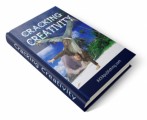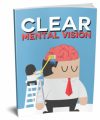Table Of Contents
Foreword
Chapter 1: What’s Included
Chapter 2: Personality Types
Chapter 3: The Test
Chapter 4: Reading The Test
Chapter 5: Types Of Tests
Wrapping Up
Sample Content Preview
Add It Up
Step 2: sum up the items marked for each theme/class. Distinguish the top 3 classes/themes that produce the most exact picture of you.
My top 3 classes/themes are: ______, ______, ______.
Step 3: How accurately do you trust your 3 top themes distinguish your personality and interests?
Realistic individuals are characterized by competitive/self-asserting conduct and by interest in activities that call for motor coordination, skill, and physical power. Individuals oriented towards this role favor situations involving “action resolutions” instead of jobs involving verbal or interpersonal skills. They love to take a concrete approach to problem-solving instead of trusting abstract theory. They tend to be interested in scientific or mechanical instead of cultural and aesthetic fields.
Fact-finding individuals want to think instead of to act, to arrange and understand instead of to sway. They’re not apt to be very “people oriented.”
Artistic individuals value expression and relationships with other people by artistic expression. They disfavor structure, favor jobs involving personal or physical skills, and are more prone to expression of emotion than other people. They’re similar to fact-finding individuals, but are more concerned with the cultural-aesthetic than the scientific.
Social individuals seem to fulfill their needs in teaching or helping positions. In contrast to fact-finding and realistic individuals, social types are pulled in more to seek close interpersonal relationships and are less apt to mesh in cerebral or extensive physical action.
Social individuals have high interest in others and are sensitive to the needs of other people. They see themselves as liking to help other people, understanding other people, and having instruction abilities. Social individuals value social activities, social issues, and interpersonal relationships. They utilize their verbal and social skills to alter others behavior. They’re typically upbeat, scholarly, and verbally oriented.
Enterprising individuals are verbally skilled and utilize this skill in persuasion instead of support of other people. They likewise value prestige and status and are more disposed to pursue it than conventional individuals.
Conventional individuals don’t mind rules and regulations and accent self-discipline. They favor structure and order to ambiguity in work and interpersonal spots. They place value on prestige or status.
Synopsis
There are at any rate 5000 aptitude and ability examinations on the market. A few of them hold only one type of question (for instance, verbal ability, numerical reasoning ability and so forth) while others are made of different sorts of question.
Types
Aptitude tests comprise multiple choice questions and are distributed under exam conditions. They’re strictly timed and a common test may allow half-hour for thirty or so questions.
The different sorts of aptitude tests can be classed as follows:
Verbal power – Includes spelling, grammar, ability to comprehend analogies and abide by detailed written directions. These questions appear in most common aptitude tests as employers commonly wish to know how well you may communicate.
Numeric power – Includes basic math, figure sequences. In management level tests you’ll frequently be presented with charts and graphs that have to be interpreted. These questions appear in most common aptitude tests as employers commonly want some indication of your ability to utilize numbers even if this isn’t a major part of the career.
Abstract thinking – Measures your power to identify the fundamental logic of a pattern and then ascertain the solution. As abstract thinking ability is believed to be the better indicator of fluid intelligence and your power to learn new things fast these questions appear in most common aptitude tests.
Spatial power – Measures your power to manipulate shapes in 2 dimensions or to visualize 3 dimensional objects presented as 2 dimensional pictures. These questions not commonly found in common aptitude tests unless the career specifically requires great spatial skills.
Mechanical thinking – Designed to evaluate your knowledge of physical and mechanical things. Mechanical thinking questions are utilized to select for a wide range of jobs including the military, police, fire as well as a lot of craft, technical and engineering jobs.
Fault diagnosing – These tests are utilized to select technical personnel who have to be able to discover and repair faults in electronic and mechanical schemes. As advanced equipment of all sorts becomes more dependent upon electronic control schemes the ability to approach issues logically in order to discover the cause of the fault is increasingly crucial.
Information Checking – Measure how fast and accurately mistakes may be detected in information and are utilized to select prospects for clerical and data input projects.
Work sampling – Involves a sampling of the work that you’ll be expected do. These sorts of test may be very wide ranging. They might call for exercises utilizing a word processor or spreadsheet if the career is administrative or they might include giving a presentation or in-tray exercises if the career is management or supervisory level.
Other Details- 1 Ebook (DOCX, PDF), 32 Pages
- Ecover (JPG)
- File Size: 64,613 KB














